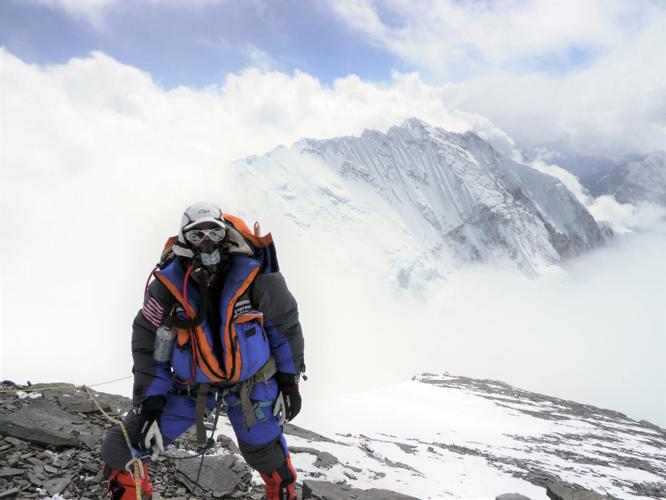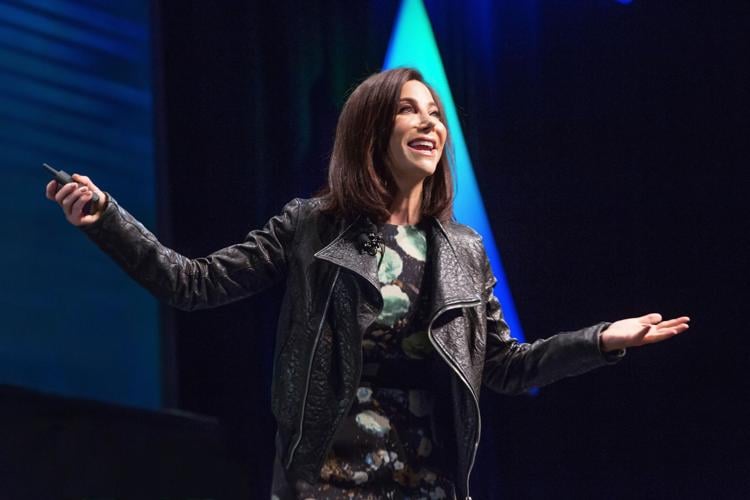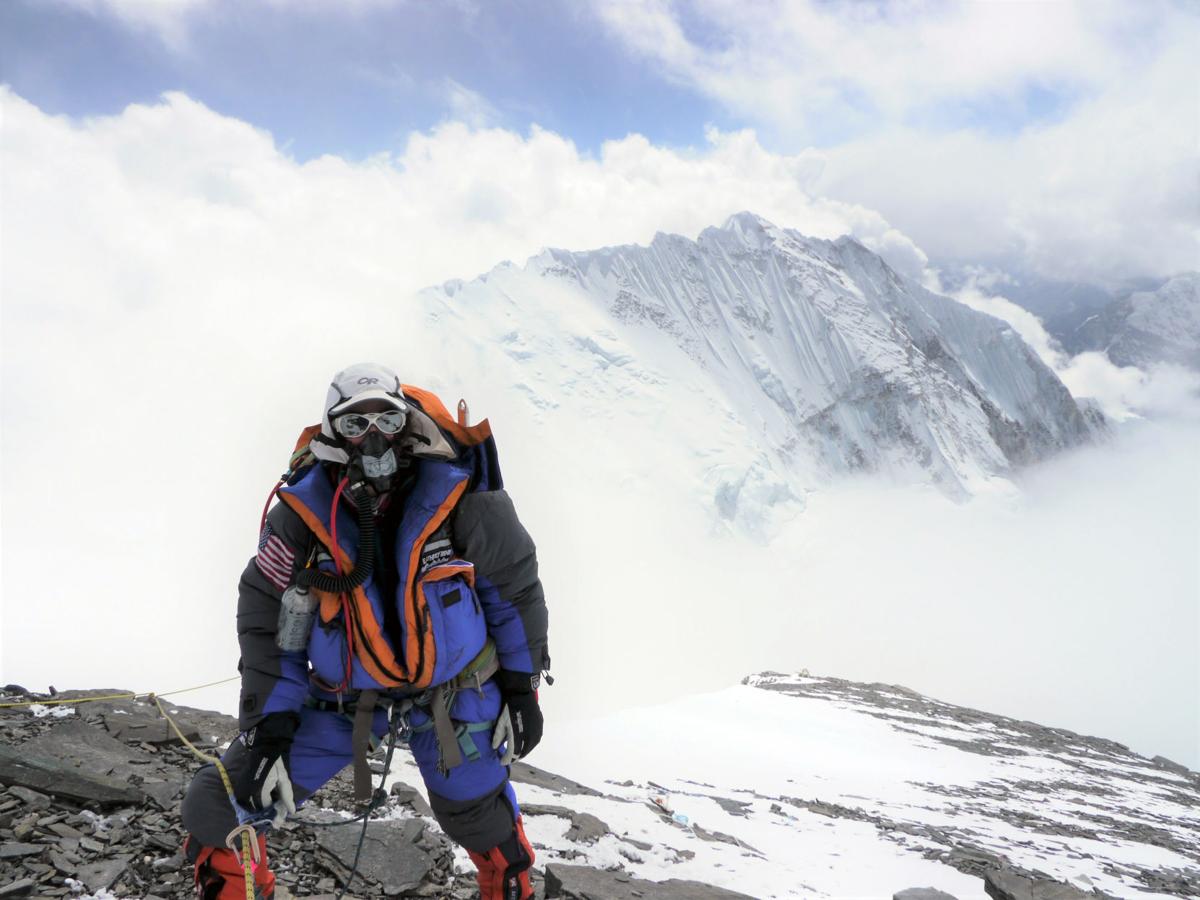Mountaineer and polar explorer Alison Levine was scheduled to speak at the University of Arizona's 2020 commencement before COVID-19 changed everything.
On Friday, May 15, Levine, who graduated from the UA in 1987 with a bachelor's degree in communication, will still address the graduates — but online. (She also has an MBA from Duke University).
Perhaps now, more than ever, it's relevant to hear from someone who has experience climbing mountains.
Levine served as team captain of the first American Women's Everest Expedition and completed the Adventurers Grand Slam — which means she climbed the highest peak on every continent and skied to the North and South Poles, according to her website.
In 2008, she was the first American to ski 600 miles from west Antarctica to the South Pole (while pulling 150 pounds of gear in a sled attached to her waist). And in 2016, she was part of teams that completed the first documented climbs to the tops of mountains in Antarctica and Nepal.
When her climbing took her to Uganda in 2005, she learned about women living at the base of the Rwenzori Mountains with no viable source of income. So Levine taught interested women skills that would allow them to work as trekking guides and porters in the mountains and make some money. That launched her Climb High Foundation.
"It struck me that if these women could get jobs as porters or high-altitude cooks, they live at the base of these mountains, and this would be a way to improve quality of life in these communities, because women would have enough money to support children and put food on the table," Levine says.
All of this experience has fueled her speaking and corporate coaching career; four years as an adjunct professor at the U.S. Military Academy West Point; and a position on the board and faculty of the Thayer Leader and Development Group at West Point, among other things. Not to mention her bestselling book "On the Edge: Leadership Lessons from Mount Everest and Other Extreme Environments."
Basically, Levine, 54, takes the lessons she has learned climbing mountains and navigating extreme environments and translates them for day-to-day life and leadership. That's the experience she'll share with UA graduates on Friday.
But Levine hasn't been climbing her whole life. Actually, she has had multiple heart surgeries and also has Raynaud's disease, in which blood circulation can be limited to certain parts of the body (ie: fingers, toes, etc.) in cold environments. This puts her at extreme risk for frostbite.
In fact, as a kid growing up in Phoenix, exploring far-off (cold!) places was just a dream for sweaty, summer days.
We interviewed Levine, who lives in California now, over the phone last week. Here are some excerpts from our conversation.
Editor's note: This interview has been edited for length and clarity.

Alison Levine completed the Adventurers Grand Slam by climbing to the highest peak on each continent and skiing to both the North and South poles.
How did you get into mountaineering?
Levine: "I did not climb my first mountain until I was 32. I grew up in Phoenix, and I was always very intrigued by stories of early Arctic and Antarctic explorers. Reading those stories was an escape from the extreme heat. I liked learning about cold places, but never thought I would go to those places, because I was born with a hole in my heart. I had my first surgery when I was 17 and my second when I turned 30. And at that point, a few months later, a light-bulb went off in my head: If I want to know what it's like to be these explorers in these remote mountain ranges, I should go instead of reading or watching a documentary."
How did you get started?
Levine: "You just start off on smaller mountains that don't require a lot of technical skills and work your way up to the higher elevation peaks and the peaks that are a little more technical and require some special equipment and training, and you have to understand crevasse rescue and assess avalanche danger ... and use an ice ax and ice tools and all of that comes with practice. ... My first mountain was Mount Kilimanjaro (in 1998). You don't need any special training, and to climb it is just one foot in front of the other."
How did your life change when you began to pursue climbing?
Levine: "I think it changed in that it taught me the power of resilience, and it taught me that I could get by with just the things I could carry on my back, and it taught me that I could keep going even when I couldn't. And I learned that I had that voice in my head that would tell me I could take one more step every time I felt like I was going to quit. ... And you realize that's all it takes to get to the top of the mountain. You don't have to be the fastest or strongest climber."
What lessons have you learned from climbing that you apply to your day-to-day life?
Levine: "Especially nowadays, one of the things I've learned from climbing is that you have to be able to shift and change as the environment around you is changing. Whatever plan you came up with, whether last year or last month or last week or this morning, your plan is outdated as soon as it is finished. You cannot rely on your plan. You have to take action based on what is going on around you."

Alison Levine takes the lessons she learns as a mountaineer and polar explorer and applies them to leadership and life.
What challenges have you faced?
Levine: "Altitude presents challenges for everyone. Even the most skilled and experienced climbers feel the altitude. You know when you're going to go up into high altitude that you're not going to feel good. You'll have a headache and queasy stomach and be taking five breaths for every step and moving extremely slowly, but these are challenges that everyone faces. And for me, being smaller at 5-foot-4 and 110 pounds, it's hard because you have to carry the same gear and supplies that everyone else carries, and it's a larger percentage of your body weight."
How does mountain climbing and adventuring in real life compare to what you might have imagined as a kid?
Levine: "It's really different. ... When I was a kid growing up, I didn't have a vision of what my future would be like. I just had no idea. ... I didn't travel a lot as a kid. We went to San Diego for vacation in the summer like everyone in Phoenix, but I didn't know about this big world, and my parents didn't travel. ... I consider traveling the best classroom you could ask for because you learn so much about yourself and other cultures, and it really opens your eyes and your heart."
How did you choose the UA for undergrad after growing up in Phoenix?
Levine: "All of the kids in my family went to the UA. ... I wanted a different environment from Phoenix and to get out of Phoenix, and I thought there was so much spirit at the school. The Wildcat spirit, to me, was so pervasive throughout the campus and the community."
More info
Alison Levine will speak to University of Arizona graduates as part of the 2020 commencement online on Friday, May 15 at 6 p.m. For more information, visit commencement.arizona.edu.







